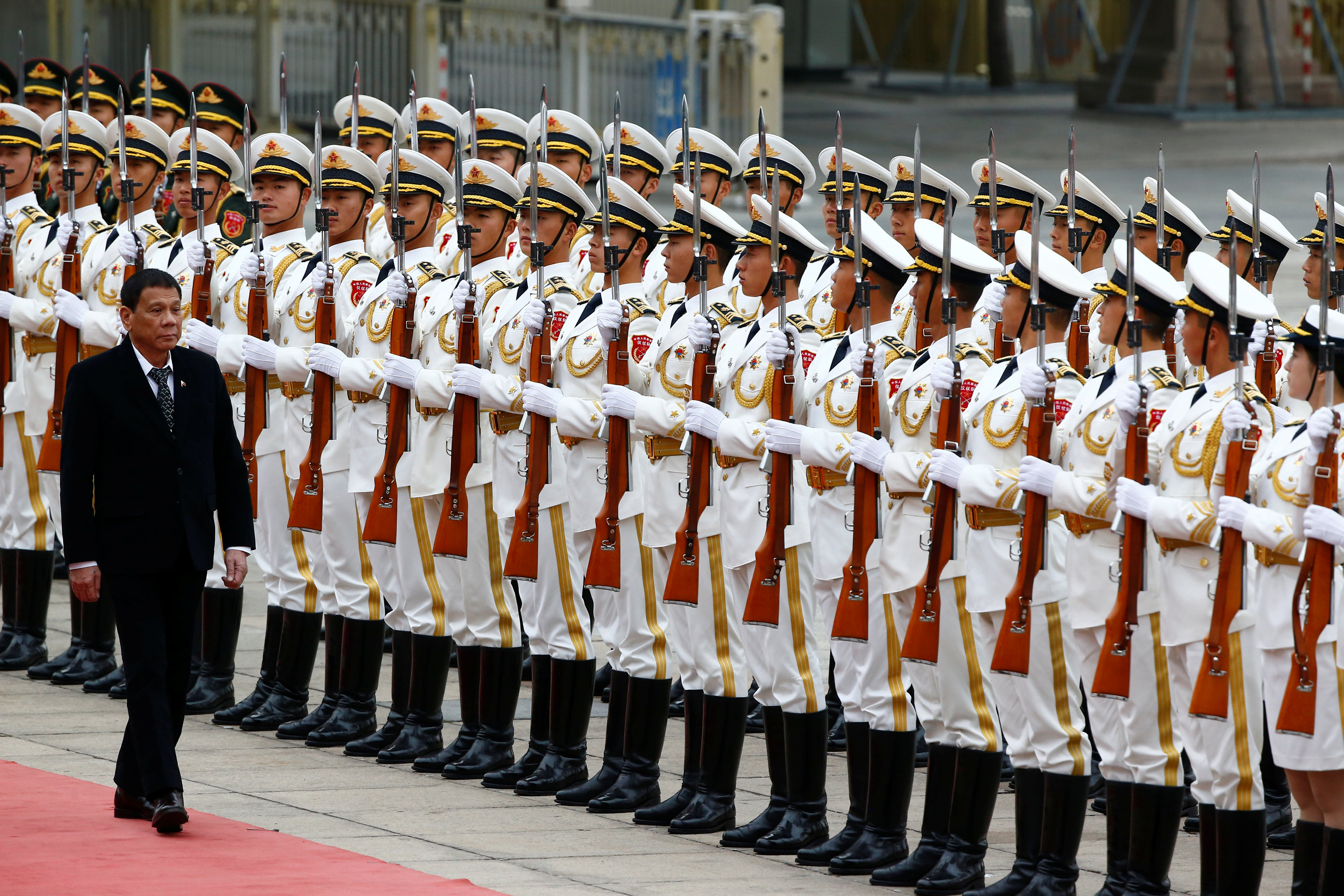
By Tom Allard and Clare Baldwin
MANILA (Reuters) – Signaling a shift in strategy in its blood-soaked war against drugs, Philippines police aim to reduce the killing of suspects and put more resources into arresting prominent people tied to the trade, two sources with knowledge of the matter said.
Project Double Barrel Alpha will put a stronger focus on arresting politicians, military, police, government officials and celebrities allegedly involved in narcotics, the sources said.
The new approach will be outlined on Tuesday at a meeting of police chiefs from each of the Philippines’ 18 regions at Camp Crame, the police headquarters north of the capital Manila, Philippines National Police spokesman Dionardo Carlos confirmed to Reuters.
The operation will be launched within days, Carlos said, adding he did not have further details of the new operation.
The meeting comes after what one of the sources familiar with details of the plan described as “intense” discussions among law enforcement officials about the wave of killings of drug suspects.
“We will give emphasis [to] arrests rather than neutralization,” said one of the sources.
Asked why the new approach is being taken now, he said: “It is related to the EJK issue. We are doing our best to address that … It was a collective decision after an intense discussion of the implications of the EJK issue.” He did not elaborate on who was involved in the decision-making.
“Neutralization” is a euphemism for the killings that have characterized the anti-drugs drive. EJK refers to extrajudicial killings.
A recent poll showed public unease over the deadly anti-drug campaign, with 94 percent of the respondents saying it was important for the police to take suspects alive.
Another component of Project Double Barrel Alpha will see police working with community leaders to clear neighborhoods of drugs and set up local rehabilitation programs.
‘NARCO STATE’
Philippines president Rodrigo Duterte had given police six months to suppress drugs and crime, warning the country was on the verge of becoming a “narco state”. He then extended the campaign, called “Project Double Barrel” another six months to make it a year.
In less than four months since taking office, almost 2,300 people have been slain in the crackdown, according to official figures, revised down from earlier estimates of 3,600.
The majority of the deaths – more than 1,600 – were during police operations, drawing sharp criticism from Western governments, the United Nations, human rights groups and some Catholic priests.
“If you know any addicts, go ahead and kill them yourself as getting their parents to do it would be too painful,” Duterte told supporters the day after he took office on June 30 this year.
Duterte’s comments were condemned by the U.N. Special Rapporteur on Extrajudicial, Summary or Arbitrary executions Agnes Callamard. “It is effectively a license to kill,” she said.
At other times, however, Duterte has said he doesn’t endorse extrajudicial killings or vigilante murders of drug suspects.
“Who killed them? I don’t know but why are they pointing at me, blaming me for those deaths,” Duterte said earlier this month.
Presidential spokesman Ernesto Abella told Reuters:
“Everything that the president said was always in the context of sticking within the law.”
WAR ON POOR
For months, Duterte has also talked about cracking down on major drug dealers, government officials and prominent Filipinos who use drugs, take bribes from drug syndicates or are directly involved.
He has read out the names of 158 government officials with alleged links to illicit drugs. He has also boasted of a broader list of about 1,000 drug suspects.
Police have said they are compiling a list of celebrities accused of being drug users and peddlers.
Now Project Double Barrel Alpha will start going after the big names in the illegal drug trade, or “high value targets”, the sources familiar with the plan said.
Thus far, the counter-narcotics campaign has focused overwhelming on impoverished drug users and small-time dealers, prompting criticism that it’s a war on the poor.
In recent years, government officials who have been arrested for drugs are more likely to be set free than serve any prison time.
Data from the Philippines Department of Justice reviewed by Reuters shows that 715 officials were arrested between 2011 and 2016 on drug matters, including “law enforcers”, elected officials and government employees. Of those, 74 per cent had their cases dismissed, or were acquitted. The Department of Justice did not respond to a request for comment.
CLEARING BARANGAYS
Another element of Project Double Barrel Alpha, was what one source described as a “Barangay Clearing Operation”, where police will work more closely with local authorities and residents to “systematically” rid neighborhoods of drugs and place more emphasis on rehabilitation.
About 27 percent of barangays – the more than 42,000 districts or villages that comprise the lowest tier of government in the Philippines – were deemed drug-affected as of September 2016, according to police and anti-narcotics enforcement data.
Once community leaders declare an area drug-free, the chief of police will certify it as such.
The military will be involved in the clearing operation, providing what one source described as “perimeter security” and intelligence.
Philippines military spokesman Brigadier General Restituto Padilla would not comment directly on any greater involvement of the military in the anti-drugs campaign. He told Reuters the armed forces would step in where police numbers were “lean” and when they were asked to become involved.
If armed forces personnel did arrest people, it was only where “law enforcement officers are not in the locality,” he said.
(Additional reporting by Karen Lema and Manuel Mogato in Manila.; Editing by Bill Tarrant.)









